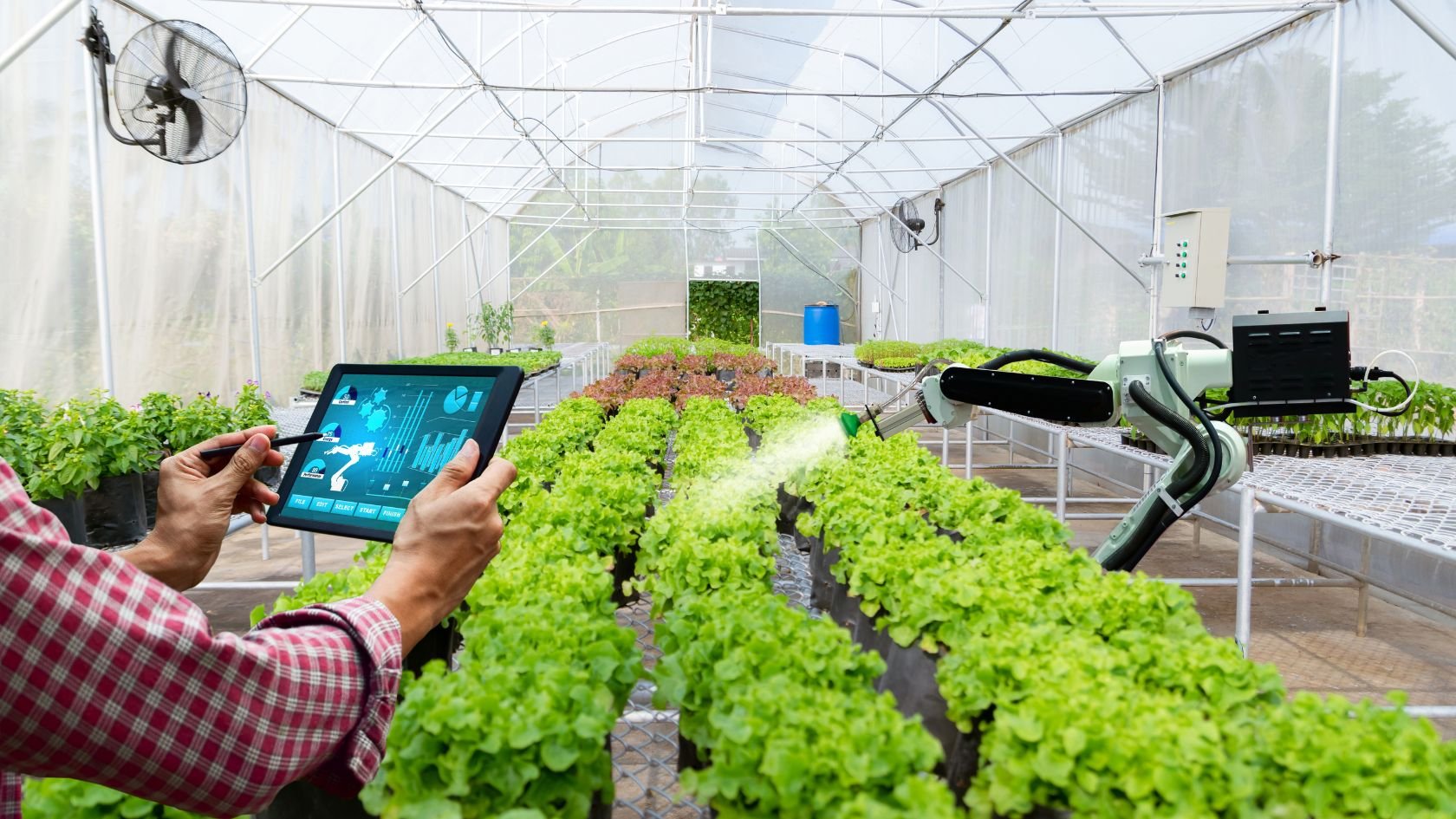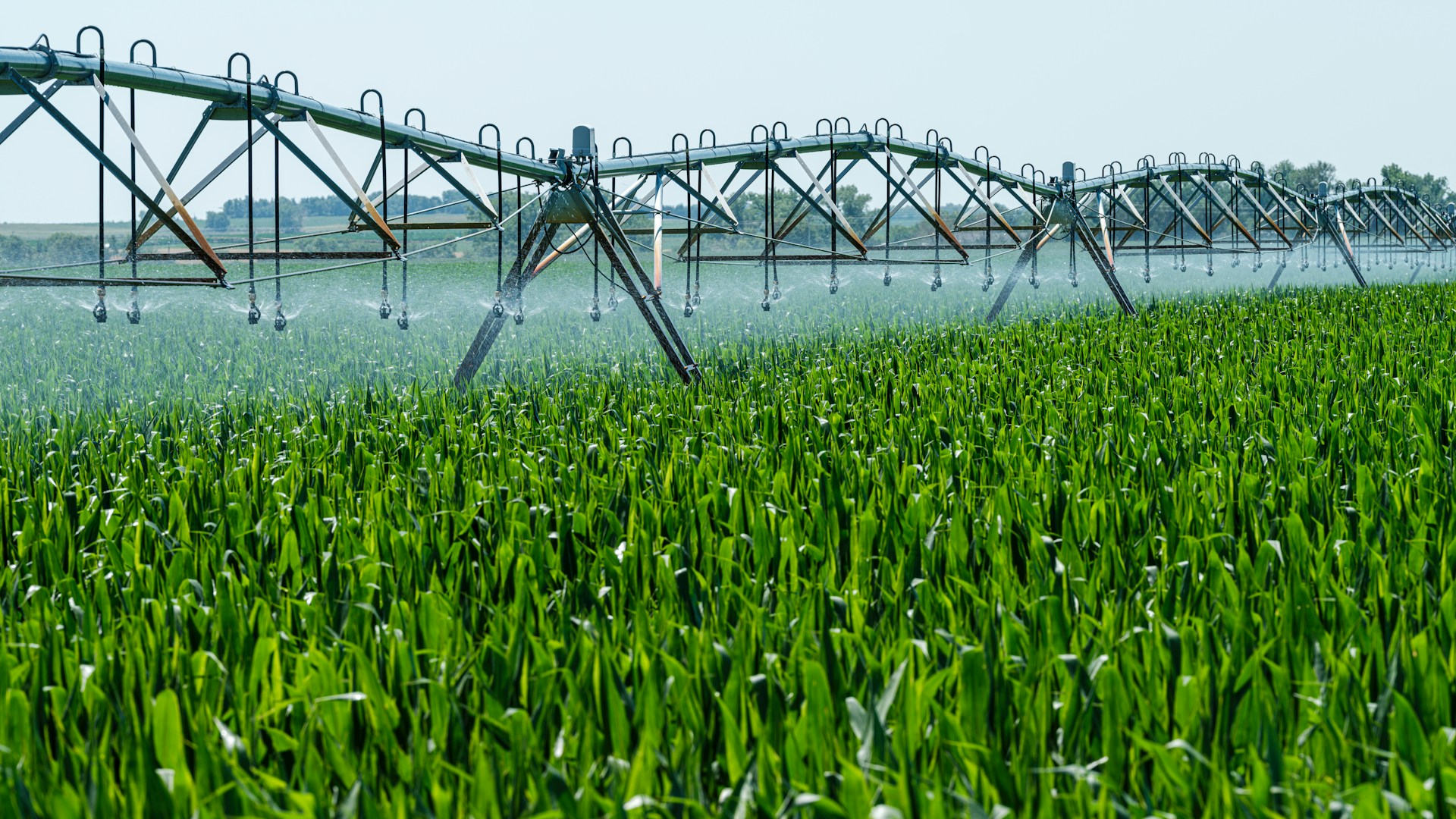On 22 March, we commemorate the United Nations World Water Day. An essential part of life, water ripples across various domains of food, nutrition, and health science research. Here, we delve into the essential research themes that spotlight the crucial role water plays in maintaining environmental equilibrium, food production, and more.
Understanding the link between water resources and climate change
Climate change poses significant challenges to water resources and the environment. Currently, roughly half of the world’s population are experiencing severe water scarcity for at least one month per year due to climatic and other factors. The number of those experiencing the extremes of drought and floods is expected to increase, due to the effects of climate change.
In response, researchers continue to study the impact of climate change on water availability and quality, including studies on rising temperatures and changing precipitation patterns. This helps us understand the potential consequences of climate change and guide us in developing strategies to mitigate its effects.
Spotlighting a related IFIS Sustainability record
How do environmental flows impact on water availability under climate change scenarios in European basins?
Paola Bianucci et al., Science of the Total Environment, Volume 911
Efficient Water Management in Agriculture and Sustainable Farming Practices
Agriculture is a major consumer of water resources, representing 72% of total worldwide freshwater withdrawals. This makes efficient water management essential to ensure the required level of food production without depleting water supplies.
Researchers are exploring innovative water management techniques and sustainable farming practices to optimize water usage in agriculture. From irrigation technologies to AI-powered systems, researchers are utilising technology to ensure that every drop counts.
Spotlighting a related IFIS Sustainability record
Production of safe cyanobacterial biomass for animal feed using wastewater and drinking water treatment residuals.
Seonghwan Park et al., Heliyon, Volume 10, Issue 3
Innovations in Food Processing Technology for Water Efficiency
The food processing industry plays a crucial role in our food supply chain, and it is important to develop both water and energy efficient methods for food manufacturing. With over a quarter of global energy consumption dedicated to food production and supply, it is crucial to address the water-intensive nature of energy generation, such as in coal-fired power plants, nuclear reactors, and bio-fuel crop production.
Research focussing on innovations in food processing and production technology continues to be popular, with targets to reduce water usage and improve overall water efficiency. The hope is to not only make food production more efficient but also more sustainable, reducing waste and energy consumption along the way.
SPOTLIGHTING A RELATED IFIS SUSTAINABILITY RECORD
Research on Water Resource Modeling Based on Machine Learning Technologies.
Ze Liu et al., Water, Volume 16, Issue 3

Minimising Water Pollution through Effective Wastewater Management
Effective wastewater management is essential to minimize water pollution and protect our water resources. Researchers are studying ways to efficiently treat and reuse wastewater, embracing a circular, sustainable economy and reducing the environmental impact. This involves reducing harm to ecosystems while enhancing the treatment, recycling, and safe reuse of wastewater as a valuable source of water, energy, and nutrients.
Further exploration is underway to find effective methods for reducing the reliance on chemical fertilisers and pesticides in agriculture, as their usage can lead to the contamination of groundwater and surface water through wastewater. By implementing effective wastewater management strategies, we can ensure that water pollution is minimized, and our water resources remain clean and safe for both humans and ecosystems.
SPOTLIGHTING A RELATED IFIS SUSTAINABILITY RECORD
Purification of Pesticide-Contaminated Water Using Activated Carbon from Prickly Pear Seeds for Environmentally Friendly Reuse in a Circular Economy.
Amira Zgolli et al., Sustainability, Volume 16, Issue 1
Read the full abstract
Ensuring Food Security through Strategic Food Policies
Food security is closely linked to water availability, agriculture, and overall food production. Researchers are focusing on developing food policies and strategies to ensure long-term food security in the face of water-related challenges.
With the global population expected to reach 9.7 billion by 2050, the question of how to feed everyone—sustainably—is more pressing than ever. This is where food policy comes into play, shaping the framework within which all these innovations operate.
Implementing strategic food policies that promote sustainable practices, reduce food waste, and support research and development in food technology are essential. We can then address the complex interplay between water availability, agriculture, and food production, ultimately ensuring that everyone has access to safe and nutritious food.
SPOTLIGHTING A RELATED IFIS SUSTAINABILITY RECORD
The effects of health-related food taxes on the environmental impact of consumer food purchases: secondary analysis of data from a randomised controlled trial in a virtual supermarket.
Michelle Eykelenboom et al., Public Health Nutrition, Volume 27, Issue Jan.
Read the full abstract
A Fork in the Road
As we stand at this fork in the road, the path we choose will determine the future of our food systems. The challenges are daunting, but the solutions are within reach, lying at the intersection of environmental sustainability, technology, and policy. By embracing innovative water management, pushing the boundaries of food production technology, reimagining waste, and crafting forward-thinking policies, we can navigate towards a future where food is not only abundant and nutritious but produced in a way that honours our planet.
We look to a future where food and sustainability go hand in hand. After all, the best way to predict the future is to create it, one sustainable bite at a time.


